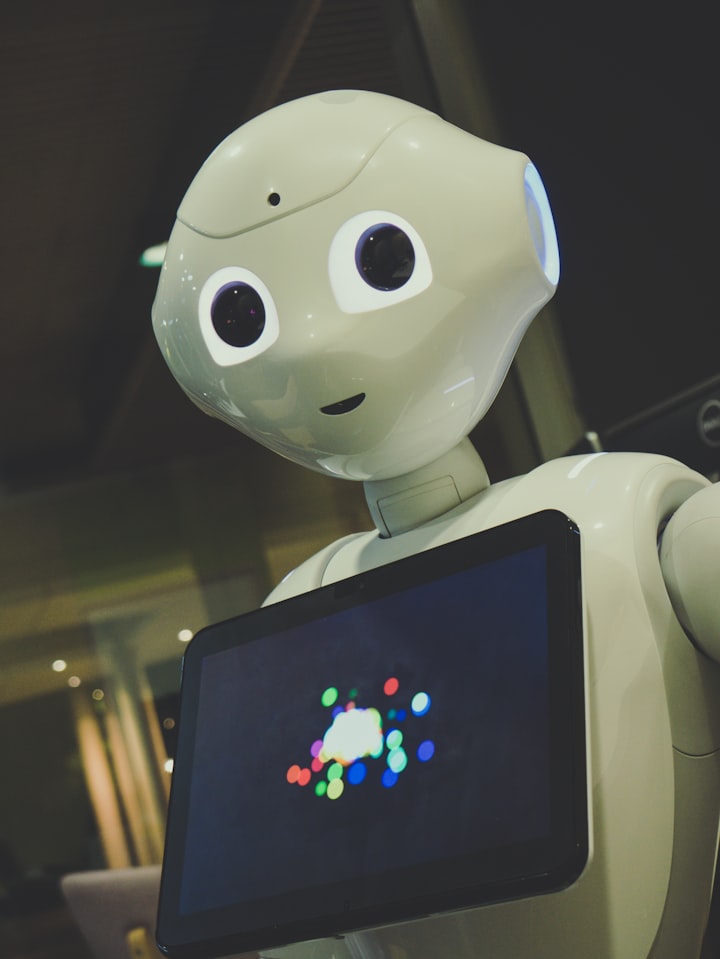"The Impact of AI on Job Automation"
Introduction

Repetitive tasks:
Jobs that involve repetitive tasks, such as assembly line work and data entry, are often the first to be automated. This is because machines and robots can perform these tasks more quickly and accurately than humans.
Physical labor:
Jobs that involve physically demanding tasks, such as loading and unloading goods or operating heavy machinery, are also at risk of automation.
Transport and logistics:
Many jobs in the transportation and logistics sector, such as truck driving, are at risk of automation as self-driving vehicles become more advanced.
Customer service:
Some jobs in customer service, such as call centers, are at risk of automation as chatbots and virtual assistants become more sophisticated.
Predictive analysis:
Jobs that involve data analysis and decision making, such as financial analysis and market research, are also at risk of automation as AI systems become more advanced.
Retail and hospitality:
Some jobs in retail and hospitality, such as cashier and front-desk clerk, are at risk of automation as self-service kiosks and check-out machines become more prevalent.
Types of Jobs at Risk of Automation
Discuss the types of jobs that are most likely to be automated, such as repetitive tasks in manufacturing and data entry, and provide examples of specific jobs that have already been automated.
Impact on Employment and Wages
The impact of artificial intelligence (AI) on employment and wages is a complex and multifaceted issue. While AI has the potential to automate certain tasks and make some jobs obsolete, it also has the potential to create new jobs and increase productivity.
One potential impact of AI on employment is job displacement, as machines and robots take over tasks that were previously done by humans. This can lead to a reduction in the number of jobs available and an increase in unemployment. However, it's worth noting that automation has been happening for many years and we have seen new jobs arise as a result of it.
Another potential impact of AI on employment is the creation of new jobs in fields such as data science, machine learning, and AI development. These jobs may require higher levels of skills and education, and may lead to an increase in demand for highly skilled workers.
In terms of wages, AI has the potential to increase productivity and efficiency, which can lead to economic growth and higher wages. However, it may also lead to a decrease in wages for certain jobs that are automated, as the cost of labor is reduced.
Overall, the impact of AI on employment and wages will depend on a variety of factors, including the pace of technological change, the availability of skills and education, and the policies and regulations put in place to address the challenges and opportunities presented by AI.
Machine learning:
Machine learning is a key component of AI and involves the use of algorithms and statistical models to enable systems to learn and improve from data. This is a highly sought-after skill in the field of AI.
Deep learning:
Deep learning is a subfield of machine learning that involves the use of neural networks to enable systems to learn from data in a more complex way. This is a highly sought-after skill in the field of AI.
Data science:
As AI systems rely on data to learn and improve, skills in data science are in high demand. This includes skills in data cleaning, data analysis, and data visualization.
Natural language processing:
Natural language processing (NLP) is an area of AI that involves the use of algorithms to enable systems to understand and generate human language. NLP is used in a wide range of applications, including speech recognition, language translation, and text-to-speech.
Computer vision:
Computer vision is an area of AI that involves the use of algorithms to enable systems to understand and interpret visual information, such as images and video. This is a highly sought-after skill in the field of AI.
Programming languages:
Proficiency in programming languages such as Python, R, Java, C++, and others are important for developing and implementing AI systems.
Problem-solving and critical thinking:
Strong problem-solving and critical thinking skills are essential for working in the field of AI, as it involves solving complex and challenging problems using technology.
Strong mathematical background:
Strong mathematical background is also important for developing and implementing AI systems.
Adapting to the Changing Job Market
Adapting to the changing job market is an important step in maintaining a successful career, particularly in a field like artificial intelligence (AI) where new technologies and developments are emerging all the time. Here are some strategies that can help individuals to adapt to the changing job market.
Conclusion
The field of artificial intelligence (AI) is rapidly advancing and changing, creating new opportunities and challenges. Staying informed and up to date with the latest trends and developments in AI, as well as developing new skills and network are important strategies to adapting to the changing job market. It is also important to be open to new opportunities, flexible, and embrace technology. Adapting to the changing job market is an ongoing process and requires a combination of self-reflection, learning and being proactive. It is important to continuously learn and grow to stay relevant and competitive in the job market.
About the Creator
ethics with AI
future for this era should conqueror the world soon......!






Comments
There are no comments for this story
Be the first to respond and start the conversation.